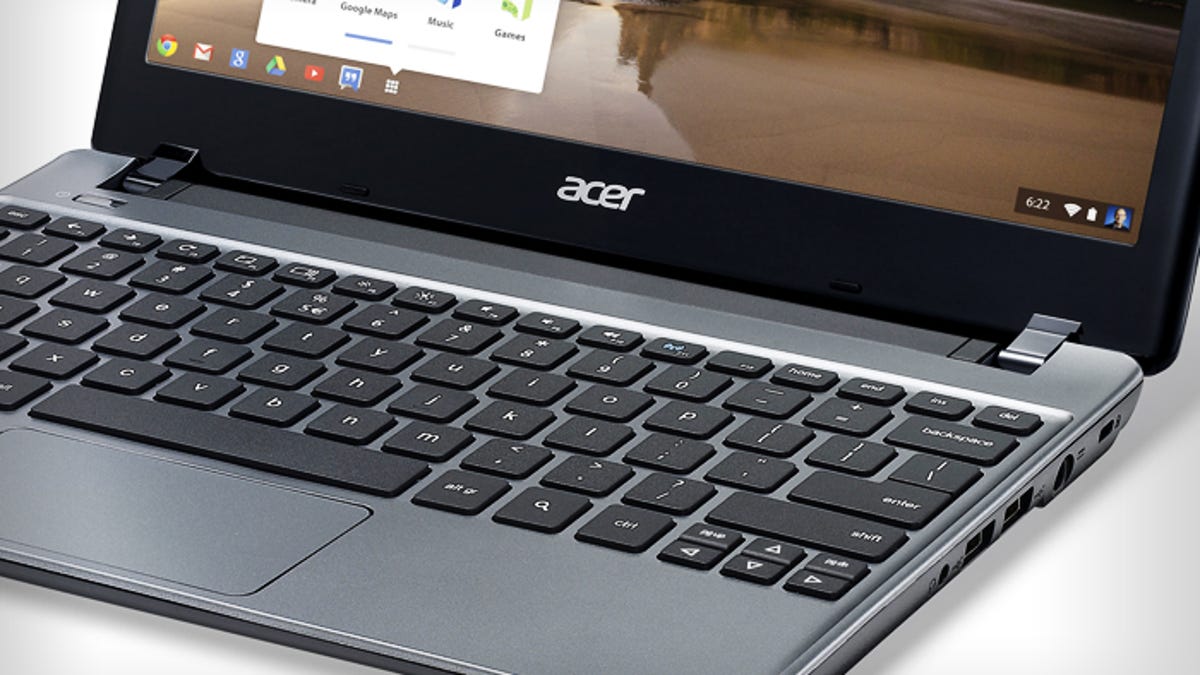Google: Top 5 events from 2012
A look back at the year's biggest news out of Mountain View, including Google+, self-driving cars and Nexus, Nexus, Nexus.

Known throughout much of its life as a premiere software company, Google in 2012 made a big push into hardware. The company expanded its lineup of Nexus-branded devices to include new smartphones and tablets, built (and then shelved) its first media-streaming device, brought out new Chromebooks, and introduced its first effort in wearable computing. And that's to say nothing of that other hardware -- the kind that drives itself.
Here's a quick look back at the year's biggest Google news.
1. A big move into hardware. Seemingly every month, there was a new piece of hardware that Google either built itself or worked closely with a partner to produce.
There was the introduction of the Nexus 7 tablet in the summer, followed by the Nexus 10 tablet in the fall. The latter introduction was accompanied by the Nexus 4, its new smartphone with LG. In the fall Google also unveiled new Chromebooks, based on its Web-based Chrome operating system, offering fast and capable laptops at tempting prices.
2. A big year for Google X.
There were significant developments this year at Google X, the futuristic lab run by Google co-founder Sergey Brin. Brin was behind what may have been the jaw-dropping unveiling of Google Glass, the company's effort at building wearable computers, at Google I/O. Accompanied by an unforgettable introduction at Moscone Center, in which a team of Glass-wearing skydivers jumped out of a Zeppelin and onto the convention center roof, Glass was one of the year's most buzzed-about products. A developer preview version of the devices will ship in 2013, giving more people a chance to spend time with the glasses and build software for them. Meanwhile, another big Google X product sped along toward mainstream acceptance. California joined Nevada in Florida in permitting self-driving cars on their roads, an occasion Brin used to predict we'll all ride in robot cars by 2017. We'll see.3. Building the future of search. Google made one of its biggest changes to search results in years in 2012 when it introduced the Knowledge Graph, its effort to build a giant database of connections between people, places and things. If successful, executives hope the Knowledge Graph will make Google come to feel like the "Star Trek" computer -- able to answer any question you might have, instantly, using natural language. The graph has grown quickly, tripling in size in the first seven months it has been available. Features introduced so far let people calculate an actor's "Bacon Number" or even get information about pharmaceuticals. And yet Google's refinements in search have not been above criticism this year. In January the company introduced personalized results into search in a way that made many longtime users uncomfortable, favoring content shared on Google+ over similar content shared on similar social networks. Search was as high of a priority as ever in 2012, and the changes should continue well into next year.
See also: Google in 2013: Five things to watch for
4. A big push for Google+. More or less ignored for its first year of existence, Google's latest social network turned 1 in 2012, and had more to show for it than some gave it credit for. Google+ gave the company a unified log-in system, letting users link Gmail accounts to YouTube, Blogger and Beyond. It let Google insert what it calls "social signals" into its products, so that (for example) a search for apps in the Google Play store will let you know if friends have downloaded the same app you're searching for. And it became a firehose of data for Google, as users began recommending stories using the +1 button, joining communities of interest and otherwise linking valuable actions to their online identities. Toward the end of the year Google began making more efforts to turn Google+ into a destination, and with positive results -- 135 million visitors now visit plus.google.com a month, and some think the network could surpass Twitter next year in monthly active visitors. Not a bad 12 months for a social network most had dismissed when it launched.
5. The antitrust case. For everything Google got right in 2012, it was dogged for much of the year by wide-ranging antitrust investigations. Both the Federal Trade Commission and the European Union mounted large, lengthy investigations into the company's business practices, centered around Google's search results and its practices for licensing patents. On the search front, competitors complained that Google unfairly favored its own results over theirs; on patents, investigators explored whether the company unfairly restricted other companies from licensing technologies essential for building modern smartphones and related technology. At press time, it was still unclear how the antitrust case would play out -- but the latest reports suggested that it would end not with a bang but a whimper. Bloomberg was among the outlets suggesting Google would make minor tweaks to its search algorithms in an effort to placate regulators, while submitting to a consent degree on the patent issue that would still allow the company to bring litigation against competitors. While the fight took place mostly behind the scenes, it's almost certain that the issue proved to be a distraction for Google in 2012.

